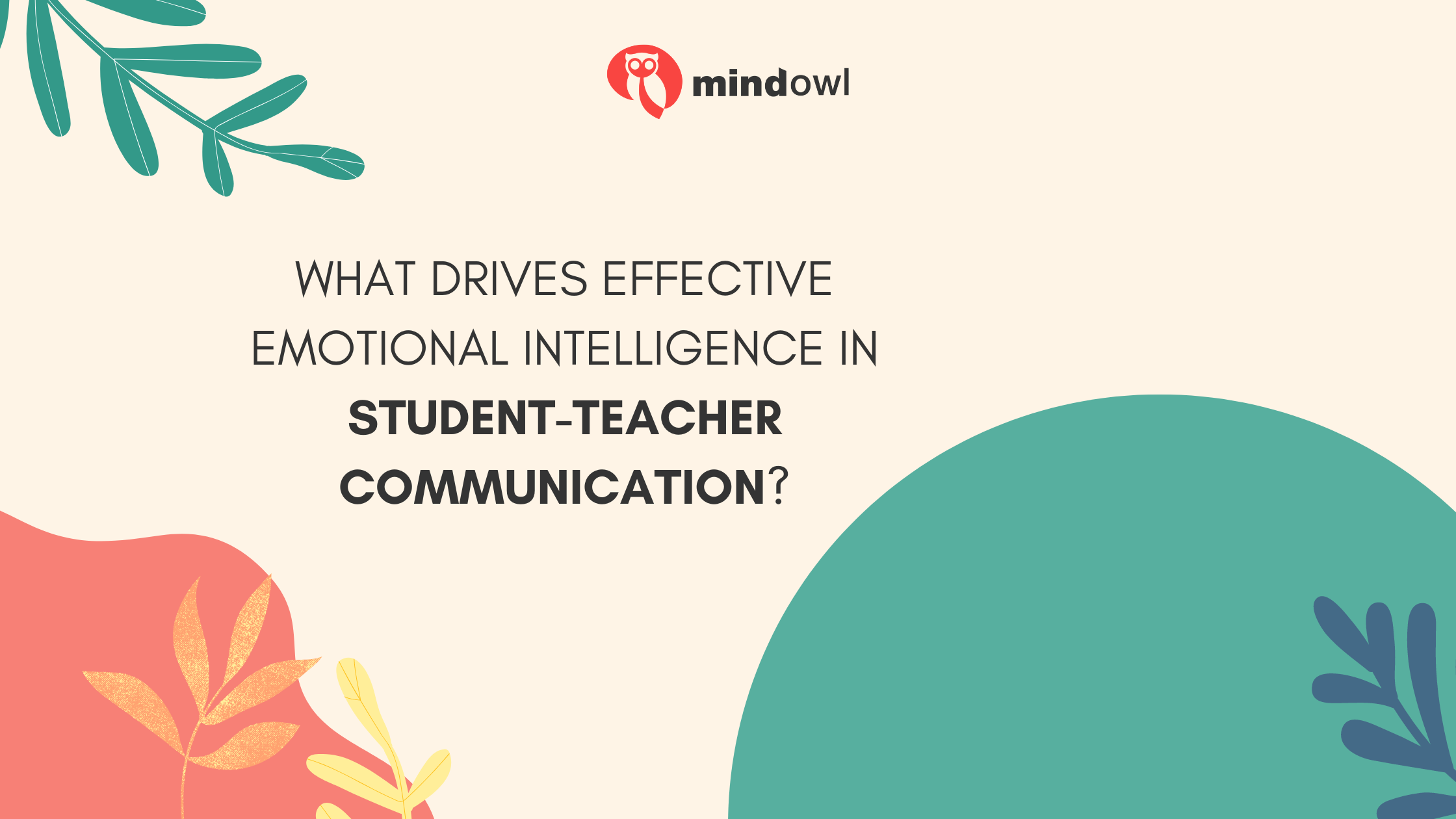
Image: Freepik
Emotional intelligence is an essential piece of the puzzle that creating a productive and harmonious learning environment is. Yet, integrating this soft skill into daily student-teacher interactions is not as easy as it sounds.
That’s where recognizing the pivotal role emotional intelligence plays, and more importantly, mastering its drivers, can help. This guide serves as your guide to understanding and implementing strategies that make emotional intelligence a natural aspect of your educational interactions.
Follow the actionable tips below to start making a tangible difference in how you communicate, empathize, and connect with students or teachers.
Cultivating Emotional Intelligence – The Foundation of Strong Student-Teacher Bonds
Emotional intelligence (EI) is the ability to recognize, understand, and manage our own feelings as well as empathize with the emotions of others.
In educational settings, cultivating EI is key to building strong, supportive bonds between students and teachers. By fostering an emotionally intelligent classroom, educators can create a safe space for learning, where students feel understood and respected.
This environment encourages open communication, resilience, and a collaborative spirit, setting the stage for improved learning outcomes and personal growth for both students and teachers.
Expressing Needs Clearly: The Art of Assertive Communication
The ability for both students and teachers to express their needs clearly is the cornerstone of a nurturing educational environment. However, in-classroom dynamics, as well as the relationship between teachers and students, makes this challenging at times.
As a teacher, you may play a fundamental role in creating an environment where everyone feels safe and free to express their needs, fears and concerns. To facilitate open communication, be sure to make students aware of the resources available to them, such as mental health support and counseling.
Additionally, it is important to anticipate your student’s needs by making sure that they know they won’t be judged when facing challenges. For example, you can show them how to fill out a school leave letter template, ensuring they know that asking for time off for personal reasons is entirely acceptable. This transparency fosters trust and understanding in any student-teacher relationship.
Building Listening Skills
Active listening is a pivotal skill in fostering emotional intelligence within any student-teacher dynamic – from high school classrooms to university lectures and one-to-one lessons. It involves fully concentrating, understanding, responding, and then remembering what is being said.
Engaging in active listening demonstrates respect and empathy towards students, encouraging them to open up and communicate more effectively. This skill not only strengthens relationships but also enhances the learning process by ensuring that feedback, instructions, and discussions are fully understood by both parties.
Offering Constructive Feedback to Foster Growth and Resilience
As a teacher, you’ll know better than anyone else the potential of your students, as well as their strengths, areas of improvement, and motivation drivers. It is important to use this knowledge to produce feedback that is conducive to helping them overcome challenges and achieve their personal and educational goals.
While this may seem a complex process, it is certainly one worth investing in. according to a 2021 study published in Frontiers magazine, some of the benefits of constructive feedback in educational settings include:
- Enhanced Learning. Feedback focused on specific actions improves student understanding and performance.
- Improved Confidence. When students see their progress recognized, it can boost their self-esteem.
- Better Resilience. Constructive criticism teaches students to view challenges as opportunities for growth.
- Fostering a Growth Mindset. Students learn to embrace feedback as a vital part of the learning process, not as a judgment.
This approach nurtures a positive learning environment where students feel supported and motivated to achieve their best rather than judged or compared to others.
Learning to Manage Conflicts: Strategies for Healthy Resolution
No educational learning is free of the risk of conflicts, especially when multiple individuals on a journey of personal growth spend entire days with each other! Fortunately, that’s where teachers can lead by example, demonstrating how to approach conflicts with empathy, active listening, and constructive problem-solving strategies.
Teaching students these skills not only aids in the immediate resolution of disputes but also enriches their academic and social competencies, helping them become better students and individuals.
Trust: The Keystone of Effective Relationships
Trust is the foundation of any relationship, including the one between students and teachers. It’s cultivated through consistent, transparent, and respectful interactions, as well as a mutual belief in the honesty, integrity, and reliability of one another.
This deep-rooted trust not only enhances communication but also significantly enriches the educational experience, creating a safe space where students feel valued, understood, and motivated to engage in the learning process.
As a teacher, you play a key role in shaping tomorrow’s society. Be sure to make a valuable contribution by making emotional intelligence a key part of every interaction with your students.
MindOwl Founder – My own struggles in life have led me to this path of understanding the human condition. I graduated with a bachelor’s degree in philosophy before completing a master’s degree in psychology at Regent’s University London. I then completed a postgraduate diploma in philosophical counselling before being trained in ACT (Acceptance and commitment therapy).
I’ve spent the last eight years studying the encounter of meditative practices with modern psychology.


